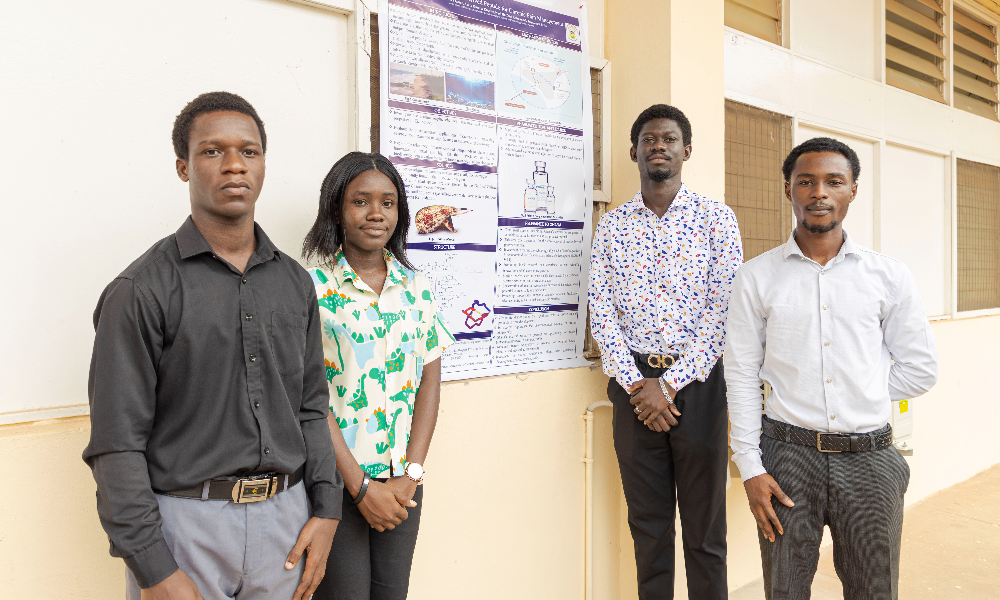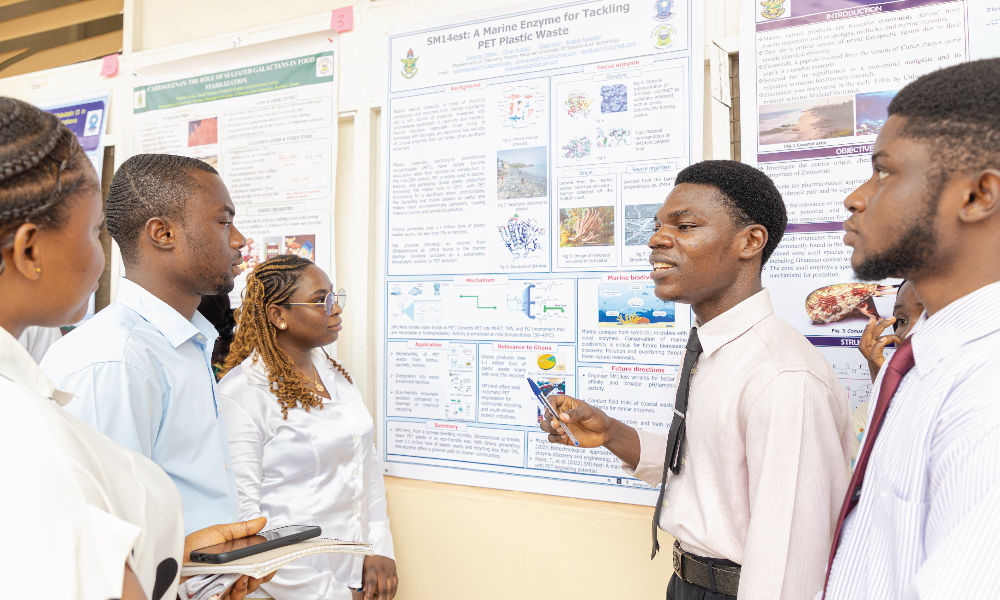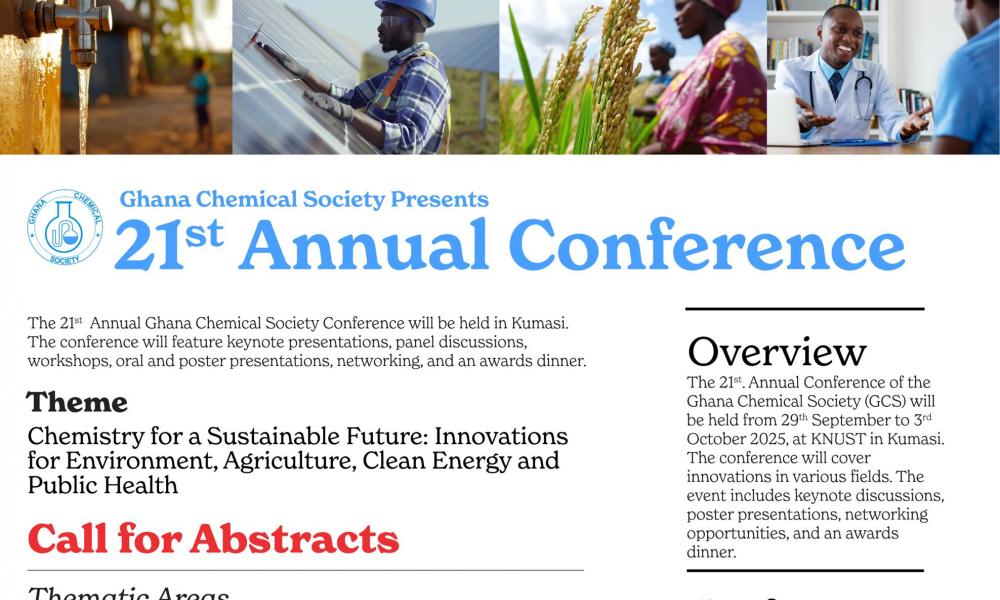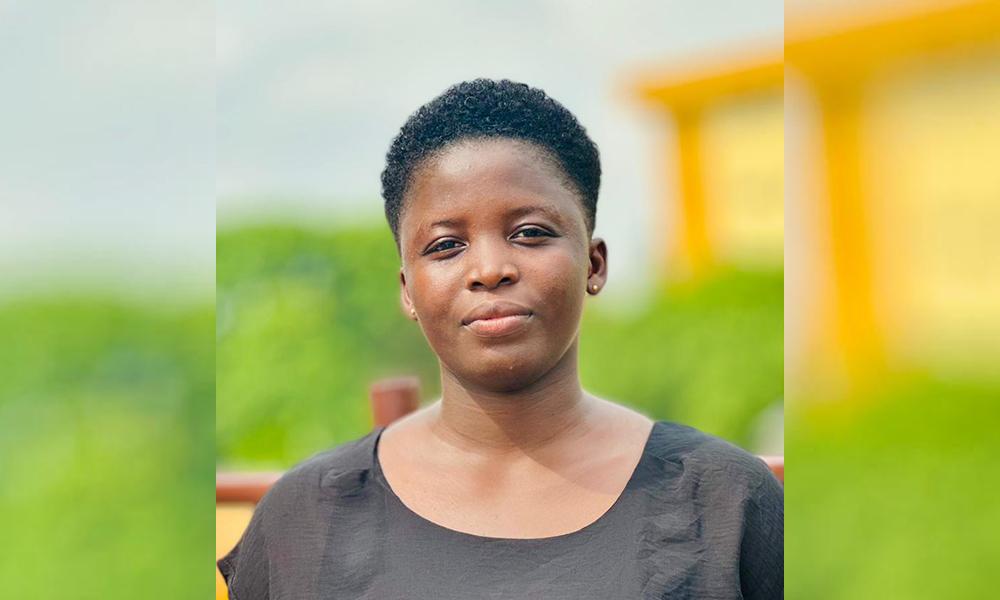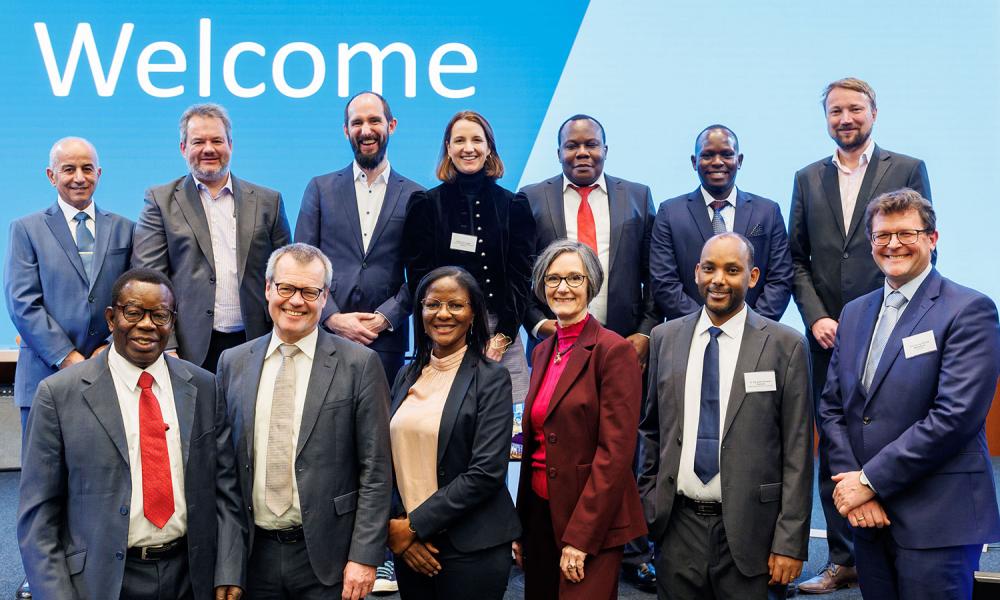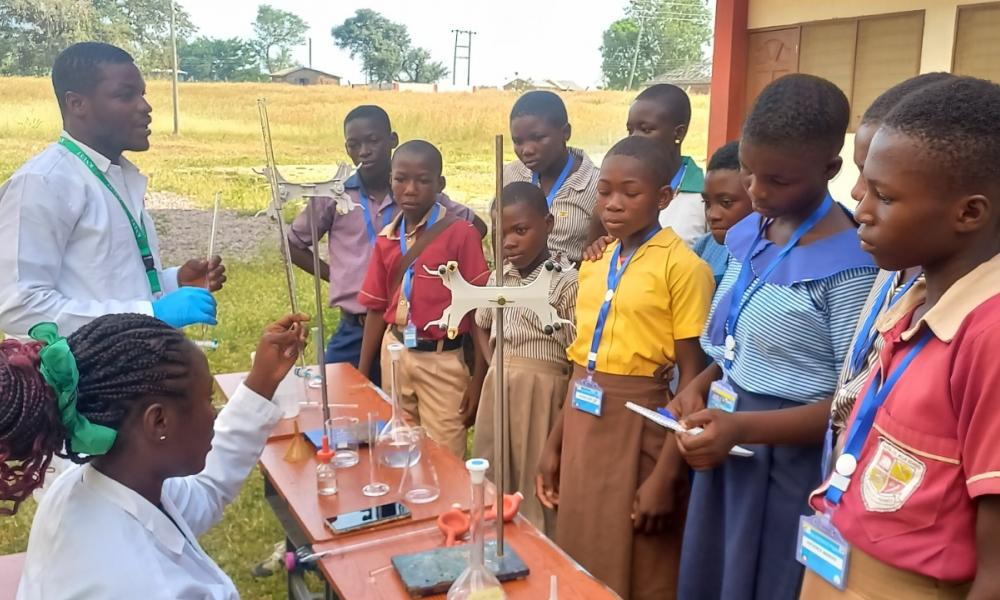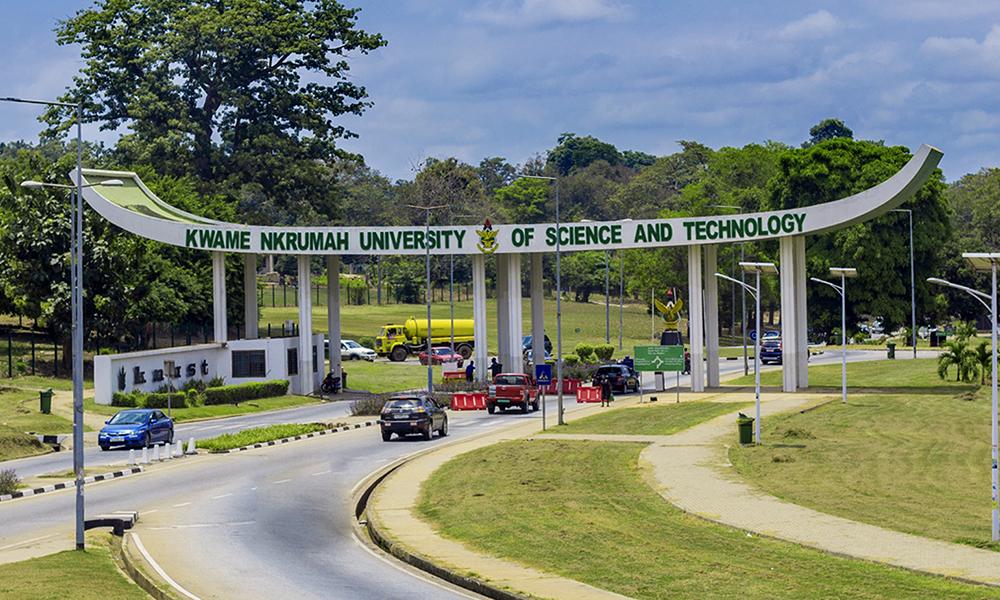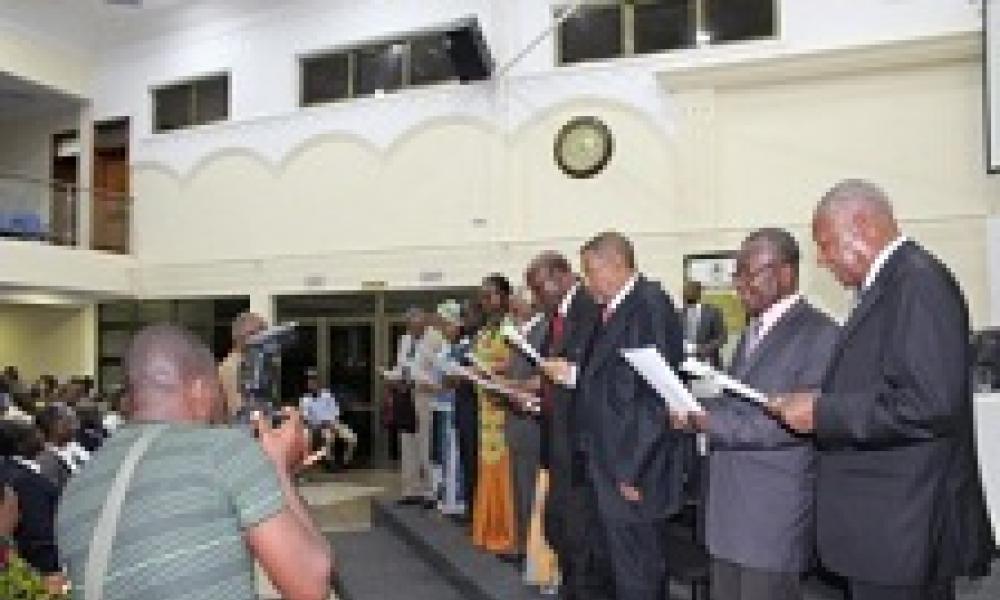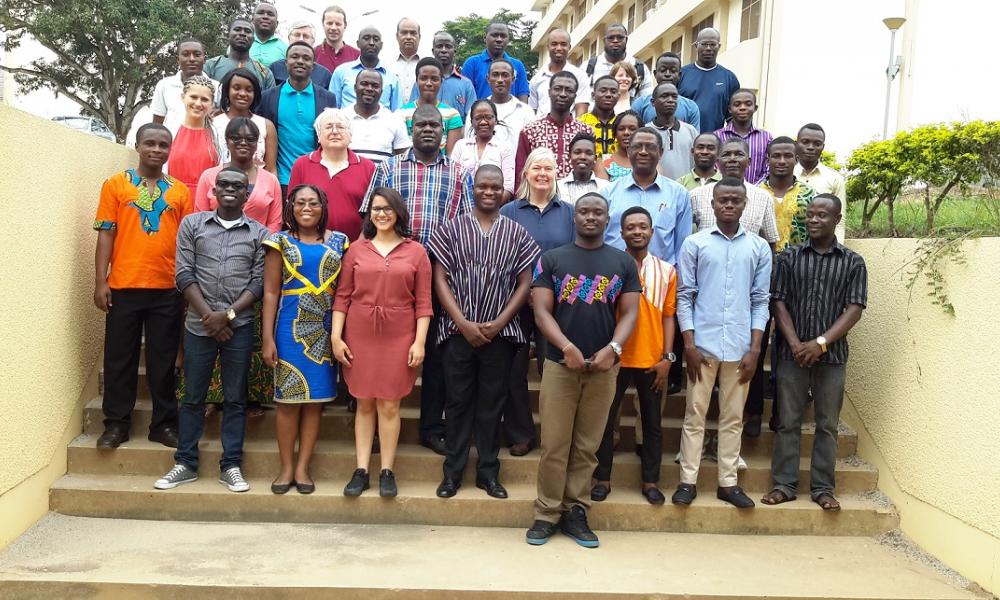PACN GC-MS Workshop organised at KNUST
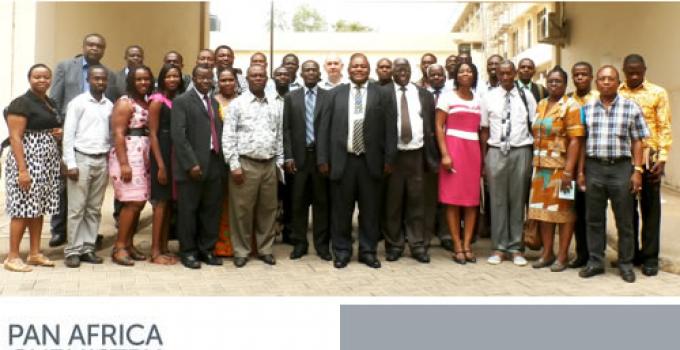
The first Pan African Chemistry Network’s GC-MS Training Workshop for West Africa took place from 16th - 20th March, 2015 at the Kwame Nkrumah University of Science and Technology, Kumasi, Ghana. The training workshop was done with the support of the Royal Society of Chemistry, UK. The theme for the workshop was ‘GC-MS: From Sampling to Data Interpretation’.
The one week programme saw seventeen participants from Ghana and Nigeria who were selected from among several applications. Four participants were from Nigeria and the rest from Ghana. The facilitators for the workshop were Prof. Anthony Gachanja from The Jomo Kenyatta University of Agriculture and Technology (JKUAT), Nairobi, Kenya and Dr. Steve Lancaster from Domino UK limited, Cambridge, United Kingdom.
At the ceremony Dr. Johannes Awudza, chairman of the local organizing committee informed the participants that the idea and discussions of a GC-MS training workshop at KNUST started back in 2010 through Dr. Alejandra Palermo, former manager of International Programmes of the Royal Society of Chemistry (RSC).
Dr. Awudza indicated that the workshop was meant to support the West African sub-region. He further said that the training consisted of theory and applications. Hence, after treatment of theoretical considerations in both Gas Chromatography and Mass Spectrometry, there will be practical applications. Dr. Awudza therefore hoped that after the workshop, participants would be knowledgeable in the theory and applications of the GC-MS technique.
Professor Samuel Nii Odai, Pro Vice-Chancellor of the Kwame Nkrumah University of Science and Technology and chairman for the opening ceremony, showed his appreciation to the organizers of the workshop. He stated that equipment for chemical and biochemical analysis are necessary for research and development in many chemicals, foods, pharmaceuticals and allied institutions. He continued that the unavailability of equipment was a major problem for universities in Ghana. Hence, he was glad RSC through PACN had organized a programme to build the capacity of scientists to utilize and maintain the GC-MS equipment for effective chemical analysis.
Prof. Odai advised participants to take advantage of the training to become the kind of experts Africa needed. He continued that participants should put the knowledge gained into practice.
Professor Jacob Midiwo, the RSC representative and president of the PACN Kenyan Hub from Nairobi, gave the profile of the workshop. He noted that training in the use and maintenance of scientific equipment and instrumentation was identified as one of the important needs for scientific research in Africa and hence the PACN had chosen to promote this activity.
Prof. Midiwo stated that the aim of the workshop was to train participants to use and maintain the GC-MS instruments for analyses. He continued that it was in this light that Ghana and KNUST had been selected to host the West African participants in the first training workshop.
Prof. Odai received a plaque on behalf of the Kwame Nkrumah University of Science and Technology and other universities in Ghana from The Royal Society of Chemistry to symbolize their donation of free access to RSC journals.
The training sessions began right after the opening ceremony. It comprised of both theory and practical sessions. Prof. Gachanja taught participants about the GC-MS instrumentation and Dr. Steve Lancaster taught participants how to analyze the mass spectra.
The training was intensive for all the five days with both theory and practical sessions each day. Participants had hands on experience on sample preparation and clean up, sample injection and data analysis. They saw and touched various parts of the GC-MS instrument such as the septa, capillary and packed columns and injection pots. They also learnt how to cut and fit capillary columns properly.
The closing ceremony was held on Friday 20th March, 2015 at 12:00 pm at the College of Science Boardroom, K.N.U.S.T. The chairman for the closing ceremony was Prof. Aboagye Menyeh, former Provost of the College of Science, K.N.U.S.T.
At the closing ceremony two participants, Dr. Francis Nsiah from the University of Cape Coast, Ghana and Dr. Christianah Abimbola Elusiyan from Nigeria talked about their experiences on behalf of the other participants and were full of praise for PACN and the local organizers for a good programme. They said they had learnt a lot and were going to practice what they had learnt at their various institutions. The two who are lecturers also said their experience was also going to enhance their teaching greatly.
Prof. Gachanja in his remark said the participants were enthusiastic and eager to learn. Dr. Lancaster said he thought the workshop was the best organized so far.
Prof. Midiwo said he was happy at the turn of events and expressed his gratitude to the College of Science, K.N.U.S.T. for their support. He said the workshop was one of the best organized training workshops.
Dr. Awudza, chairman of the local organizing committee, thanked the participants for their comportment and full participation of the programme. He said the participants came from Nigeria and Ghana because of the Ebola disease which had affected people in other West African countries. He was optimistic that subsequent training workshops organized would have people coming from other West African countries.
The chairman for the closing ceremony in his closing remarks thanked the PACN and the Department of Chemistry for putting the GC-MS to good use. He said the procurement of the GC-MS began in 2005 and the instrument was installed in 2014. All the participants received certificates for their participation at the closing ceremony.
